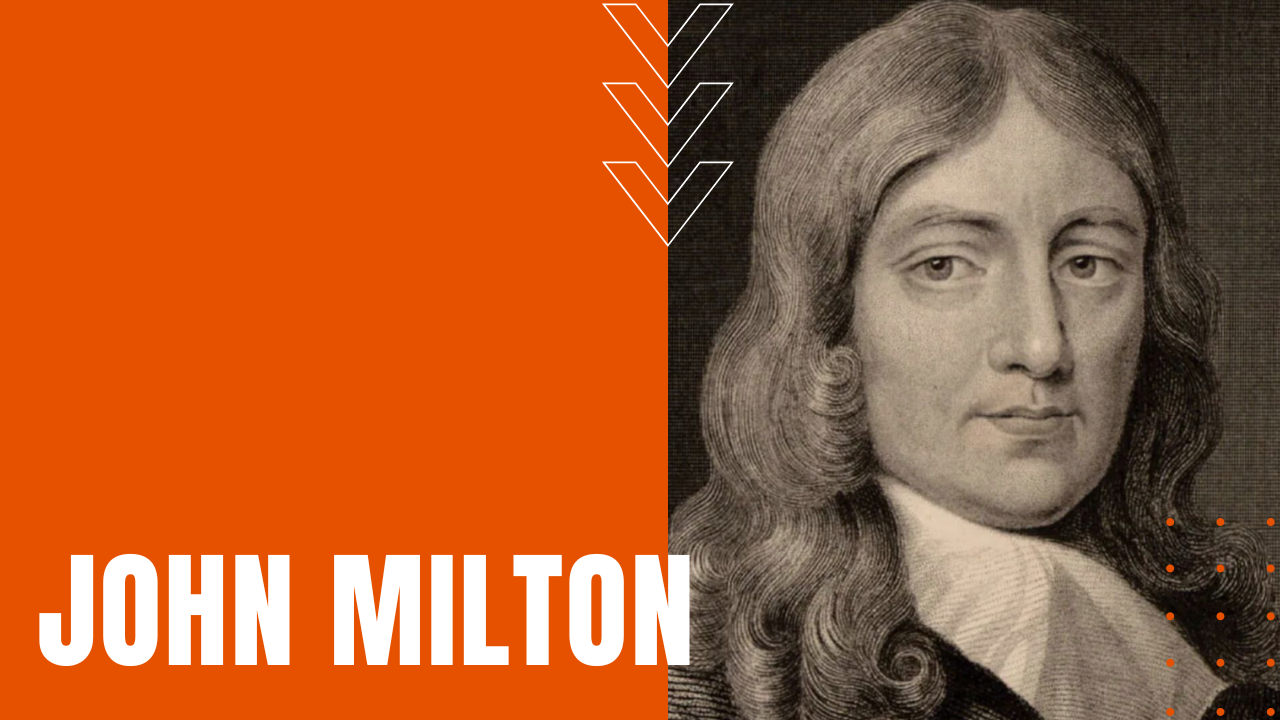John Milton

Born in 1608 London England, John Milton was one of three children born to John and Sara Milton who survived into adulthood, attending Christ’s College Cambridge where he received a Bachelor of Arts degree in 1629, followed by a Masters of Arts in 1632, earning the nickname Lady of Christ’s for his delicate looks and Puritanical chastity, at the same time becoming fluent in multiple languages, including Latin, Greek, Italian, Hebrew, French and Spanish.
Early Works
Spending the next six years with family in Buckinghamshire, Milton wrote On the Morning of Christ’s Nativity, On Shakespeare, L’Allegro, Il Penseroso and Lycidas, the later in memory to a friend who had drowned. During his travels across Europe in 1638, 30-year-old Milton met Galileo Galilei in Florence, when the great astronomer was old and blind and under house arrest for his heretical beliefs in a heliocentric universe, rather than the earth-centric model as described in the Bible—a meeting which proved to be a tragic foreshadowing of Milton’s own impending blindness and arrest in his years to come.
English Civil War
Returning home early due to the impending English Civil War, while Milton believed in the inerrant authority of the Bible, he vehemently opposed institutions like the Church of England due to its incestuous ties to the monarchy. In response, Milton wrote pamphlets supporting Oliver Cromwell during the English Civil War, following the beheading of King Charles the 1st and the rise of the Commonwealth of England.
Imprisoned
Imprisoned for his role his the civil war, upon his release, Milton married for a third time before publishing his 10 volume epic poem, Paradise Lost in 1667, which tells the story of Satan’s fall from grace and Adam and Eve’s expulsion from the Garden of Eden—a masterwork which he had dictated to his assistants due to blindness caused by his addictive dedication to scholarship and the written word.
Milton’s Greatest Work
Considered by many to be the greatest epic poem ever written in English, Milton published a revised twelve-volume version of Paradise Lost in 1674, before passing away that same year due to complications from gout. 63 years later, his achievements were memorialized by the dedication of a monument to Milton in Westminster Abbey’s Poet’s Corner, making the life and writings of John Milton, a standout icon in the history of English literature.
